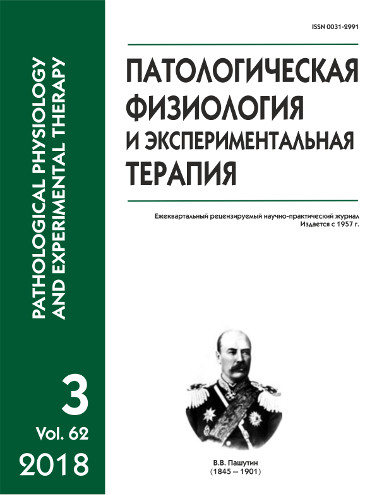Effect of carvedilol on the redox-status of plasma low-molecular-weight aminothyols in rats with acute cerebral ischemia
Keywords:
cerebral ischemia, rats, aminothiols, carvedilol, adrenergic agonists, redox status
Abstract
Aim. Effect of a nonspecific adrenergic antagonist carvedilol on the redox status of plasma low-molecular-weight aminothiols (cysteine, homocysteine, glutathione) was studied in rats with global cerebral ischemia (occlusion of common carotid arteries with hemorrhage). Methods. A model of global ischemia (occlusion of common carotid arteries with 15-min hemorrhage) was used. The drugs were administered one hour before the operation. Aminothiol levels were measured by HPLC with UV detection at 40 minutes after the onset of reperfusion. Results. Carvedilol 10 mg/kg increased the redox status of cysteine and glutathione in rats not exposed to ischemia (3 and 3.5 times, respectively, compared with the control, p = 0.04 and p = 0.008, respectively) but not of homocysteine, by increasing their reduced forms. However, this effect was not observed in ischemia. In rats with ischemia treated with carvedilol, the redox status (Cys = 0.85 ± 0.14%, GSH = 1.8 ± 0.7%, Hcys = 1.1 ± 0.8%) remained low similar to that in rats with ischemia not treated with carvedilol (p >Downloads
Download data is not yet available.
Published
05-10-2018
How to Cite
Nikiforova K. A., Alexandrin V. V., Bulgakova P. O., Ivanov A. V., Virus E. D., Kubatiev A. A. Effect of carvedilol on the redox-status of plasma low-molecular-weight aminothyols in rats with acute cerebral ischemia // Patologicheskaya Fiziologiya i Eksperimental’naya Terapiya (Pathological physiology and experimental therapy). 2018. VOL. 62. № 3. PP. 12–18.
Issue
Section
Original research






